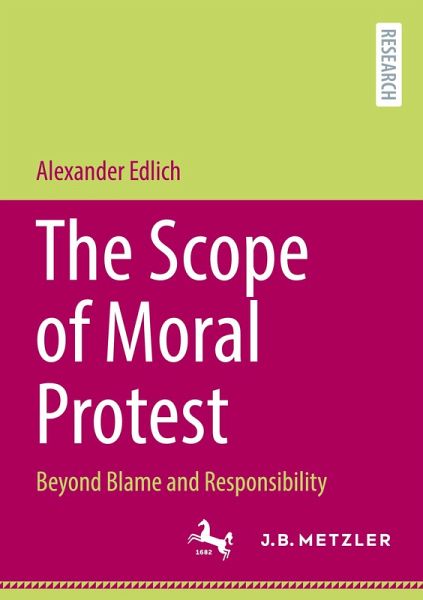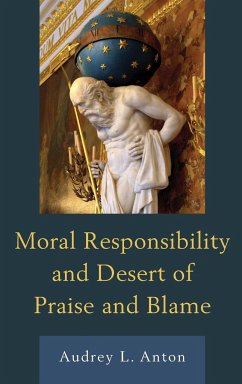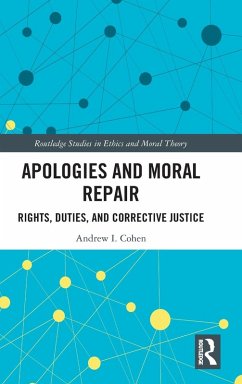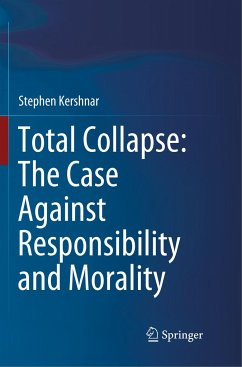
The Scope of Moral Protest
Beyond Blame and Responsibility

PAYBACK Punkte
34 °P sammeln!
The book highlights a neglected aspect of our moral practices: we can morally protest objectionable conduct without blaming agents for it. In this way, moral responses to wrongful conduct are possible without assessing the blameworthiness of agents.The book offers an account of moral protest as a type of stance-taking: in protest, the protester commits themselves to treating what they protest as morally objectionable, which is related to a specific class of moral emotions. The aptness conditions of moral protest and the concept of objectionability are discussed and this perspective is applied ...
The book highlights a neglected aspect of our moral practices: we can morally protest objectionable conduct without blaming agents for it. In this way, moral responses to wrongful conduct are possible without assessing the blameworthiness of agents.
The book offers an account of moral protest as a type of stance-taking: in protest, the protester commits themselves to treating what they protest as morally objectionable, which is related to a specific class of moral emotions. The aptness conditions of moral protest and the concept of objectionability are discussed and this perspective is applied to a critical discussion of the attributionist view of blameworthiness and corresponding views of blame. It concludes that our moral practices allow for more variation than is often acknowledged, some of which unrelated to moral responsibility, and that this gives us reason not to insist on a broad view of blameworthiness. Specifically, it is argued that the significance of morally objectionable conduct and the needs of victims of wrongdoing can be done justice to without blame. The book thus suggests that moral protest without blame may be called for more often than we think, including for many types of wrongdoers whose culpability is disputed.
The book offers an account of moral protest as a type of stance-taking: in protest, the protester commits themselves to treating what they protest as morally objectionable, which is related to a specific class of moral emotions. The aptness conditions of moral protest and the concept of objectionability are discussed and this perspective is applied to a critical discussion of the attributionist view of blameworthiness and corresponding views of blame. It concludes that our moral practices allow for more variation than is often acknowledged, some of which unrelated to moral responsibility, and that this gives us reason not to insist on a broad view of blameworthiness. Specifically, it is argued that the significance of morally objectionable conduct and the needs of victims of wrongdoing can be done justice to without blame. The book thus suggests that moral protest without blame may be called for more often than we think, including for many types of wrongdoers whose culpability is disputed.












